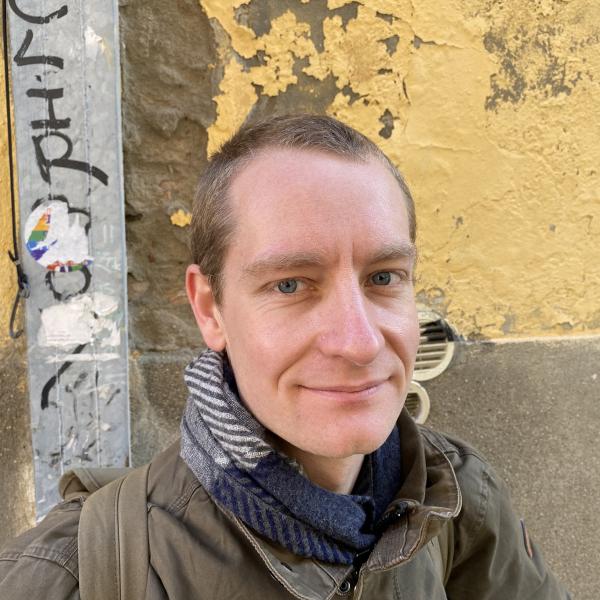Dr George Roberts
School of History, Philosophy and Digital Humanities
Lecturer in Modern History


Full contact details
School of History, Philosophy and Digital Humanities
Jessop West
1 Upper Hanover Street
91̽»¨
S3 7RA
- Profile
-
I’m a historian of twentieth-century Eastern Africa, especially Tanzania and Comoros. I’m interested in the politics of decolonisation, particularly African socialism, anticolonial liberation struggles, and the region’s role in global Cold War. My first book, Revolutionary State-Making in Dar es Salaam, was published by Cambridge University Press in 2021. It is available . I am presently working on East African experiences of the oil crises and commodity shocks of the 1970s.
Prior to joining 91̽»¨ in 2022, I taught at King’s College, London. I have also held a Junior Research Fellowship at Cambridge and a Max Weber Postdoctoral Fellowship at the European University Institute, Florence. I completed my PhD in History at Warwick in 2016 and my BA in History at Cambridge in 2012
- Research interests
-
My first book, Revolutionary State-Making in Dar es Salaam: African Liberation and the Cold War, 1961-1975, was published by Cambridge University Press in 2021 and is available . It examines how the vibrant political scene of Tanzania’s capital shaped the struggles of exiled Third World liberation movements as they fashioned a new global order after empire. At the same time, the book argues that these dynamics created powerful enemies for Tanzania’s own socialist revolution, which took a sharp authoritarian turn. The book thereby examines the paradoxical relationship between radical internationalism and authoritarian state-making in post-colonial Africa.
I continue to work on the history of African revolutionary movements through a study of the decolonisation of the Comoros archipelago from the perspective of diaspora communities around East Africa’s Indian Ocean basin. Research emerging from this project has been published in the .
The disintegration of the Third World solidarities which animated revolutionary Dar es Salaam provides the moment of departure for my current major project on East Africa’s experiences of the oil crises and commodity shocks of the 1970s. At multiple levels – from ordinary people to international elites – it examines what I term the ‘politics of scarcity’ in the region. It investigates how Kenyans, Tanzanians, and Ugandans repositioned their livelihoods and state-making agendas in a world marked by global interdependence and everyday shortages. In the boardroom, it shows how African politicians drew together new global networks involving commercial banks, commodity traders, and petroleum firms to secure their power. In homes and markets, it demonstrates how ordinary Africans navigated an economic terrain overseen by a post-colonial state that was simultaneously more interventionist yet increasingly unable to meet citizens’ welfare needs.
I also have a broad interest in the relationship between decolonisation and the media, especially the political economy of newsprint. I am currently co-editing, with Zamda Geuza (Exeter) and Emma Hunter (Edinburgh), a book on newspapers and publishing in Tanzania since independence.
- Publications
-
Books
Journal articles
- . Journal of Eastern African Studies, ahead-of-print(ahead-of-print), 1-21.


- TANU’s Bombay Delegates: Stephen Mhando, Ali Mwinyi Tambwe, and the Global Itineraries of Tanganyikan Decolonisation. Tanzania Zamani, 14(1), 1-44.


- . The Journal of African History, 62(3), 411-429.


- . Cold War History, 17(1), 1-19.


- . Journal of Eastern African Studies, 8(4), 692-709.


- The Paper Famine: Newsprint, Development, and the Materialities of Third World Media in the Time of Decolonisation. Journal of Global History.


Chapters
- PRESS, PROPAGANDA AND THE GERMAN DEMOCRATIC REPUBLIC'S SEARCH FOR RECOGNITION IN TANZANIA, 1964-72, WARSAW PACT INTERVENTION IN THE THIRD WORLD: AID AND INFLUENCE IN THE COLD WAR (pp. 148-172).


Book reviews
- . Journal of Eastern African Studies, ahead-of-print(ahead-of-print), 1-21.
